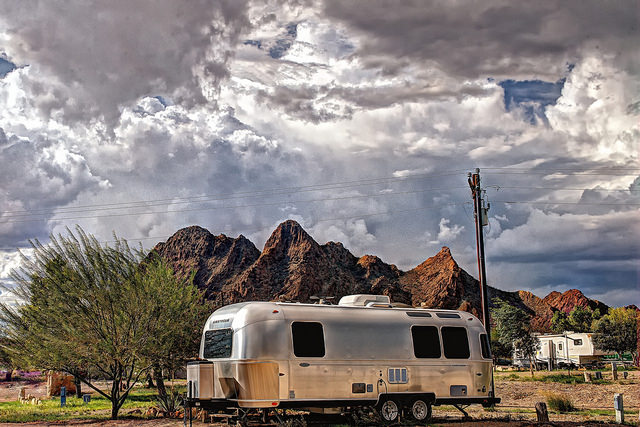While the previous story is one that sadly does not end well take heed to these next survival tips. While some may see “survival tips” as elementary sometimes it's the small things that are the defining line between life and death.
1. Survival isn’t easy
First off, this sad story reminds us of the harsh reality of true survival situations. While watching your favorite Man vs. Wild episode in the comfort of your den may seem exciting, the reality is very different. Experiments in the most extreme conditions are best left to folks with the most experience.
2. Bring a lifeline
Any individual attempting a similar experiment would be wise to bring some form of communication with them. If you put yourself into that situation and find yourself failing, having a communication device could save your life.
3. Take baby steps
Big-name survivors like Cody Lundin, Dave Canterbury, Tom Brown, Matt Graham and Bear Grylls throw themselves into these environments for a living. However, they didn’t start off in these extremes. In fact, if you read Tom Brown’s Field Guide to Wilderness Survival, he tells many stories of the baby steps he took as a kid to achieve his level of expertise.
4. Expect surprises
In the real world, things go wrong and conditions are not always ideal. In order to really master a skill, you should be able to practice it at any time and under any condition. Rains might drench your fire-starting equipment, or you might need to set up a shelter in the middle of a blizzard. What do you do when things don’t go according to plan.
5. Prioritize
Most of the chatter about survival seems to focus on food. Yet food is perhaps your lowest priority in most situations. Lightning strikes kill in an instant. Drowning takes just a few minutes. Exposure can kill you in a few hours. People have lived for months without eating more than a few creepy critters. The case of David Austin can remind similarly minded people about the very real dangers of weather. Finding a way to stay warm/cool, dry and protected should likely be your top priorities.
7. Level with yourself
Push aside your ego and level with yourself about your true skill set. Personally, I wouldn’t consider myself an expert in the field of survival. Unless you were raised in a unique situation, you likely don’t have the skills to survive with just a knife. This is especially true as the conditions get more and more challenging. As you challenge yourself, make sure you don’t overestimate your skill set.
These may seem like things already known to the average outdoorsmen but it's worth repeating.
Do you have any other words of advice for those thinking of venturing off the grid for awhile? If so let us know in the comments below.
Source: Off The Grid News.

I feel filthy from the article referencing Dave Canterbury and Bear Grylls. Both are fakes. Name recognition should not be the point. Actually teaching solid skills should be.
Are you broken?? Canterbury is not a fake. He’s the author of the 10 C’s and eats and breathes bushcrafting 24×7. The man probably wouldn’t notice the difference of you stuck him out on an island all alone.
He did exaggerate his military service, which he apologized for quite a few years ago. Get over it.
Die Hard: I realize that writing original content is a new concept to you, and I applaud the effort. It makes the ‘next page’ click baiting barely worth the effort. However, pay attention to your formatting. You have tips 1, 2, 3, 4, 5 and 7.
LOL! Broken? Hah. If writing a book is your gauge then so be it. Just keep in mind with the Internet anyone can write a book. Canterbury does not live it. He takes people out on adrenaline junkie “expeditions” to areas of the Appalachians. Have you actually looked into his “school?”
I’m not going to argue with you, merely point out the facts. Canterbury is almost as bad as Grylls. He takes unnecessary risks and doesn’t bother to explain them as such (evidence: Dual Survival). This is a terrible way to teach. Even when you don’t think you are teaching you are. If you have children, you know this to be true (evidence: life). That is the difference between a Dave Canterbury and a Cody Lundin.
Cody really lives it. If you did any investigating, you’d know that the difference between Canterbury and Lundin is night and day.
I am a big fan of knives in off-grid survival. And a whole lot of other things. He forgot the whole lot of other things.
Bear Grylls isn’t that big of a fake. Yes, his tv show kinda was, but the man definitely knows some things on survival.
Eric Thames I don’t see it as degrees of progression. I see it as binary – you either are or you are not.
When the cameras are shut off and you crawl out of the shelter and go soak in a hot tub in a hotel, you are a fake. When you are intentionally taking unnecessary risks you are not an instructor, you are an adrenaline junkie. Bear Grylls is a terrible example for these reasons.
Hazards cannot be helped, risk can be. When teaching survival one should always be teaching risk avoidance. This is what Cody Lundin does. Otherwise you are playing games with other people’s lives.
Well Grylls is surviving better than most of us for sure. After a day of drinking his own piss, is say he deserves a bubble bath.
A Michael Gautreaux I think there was something lost in the explanation. In the show he portrayed himself staying in an improvised shelter overnight. In fact he was leaving the shelter and staying in a hotel instead. That is dishonest.